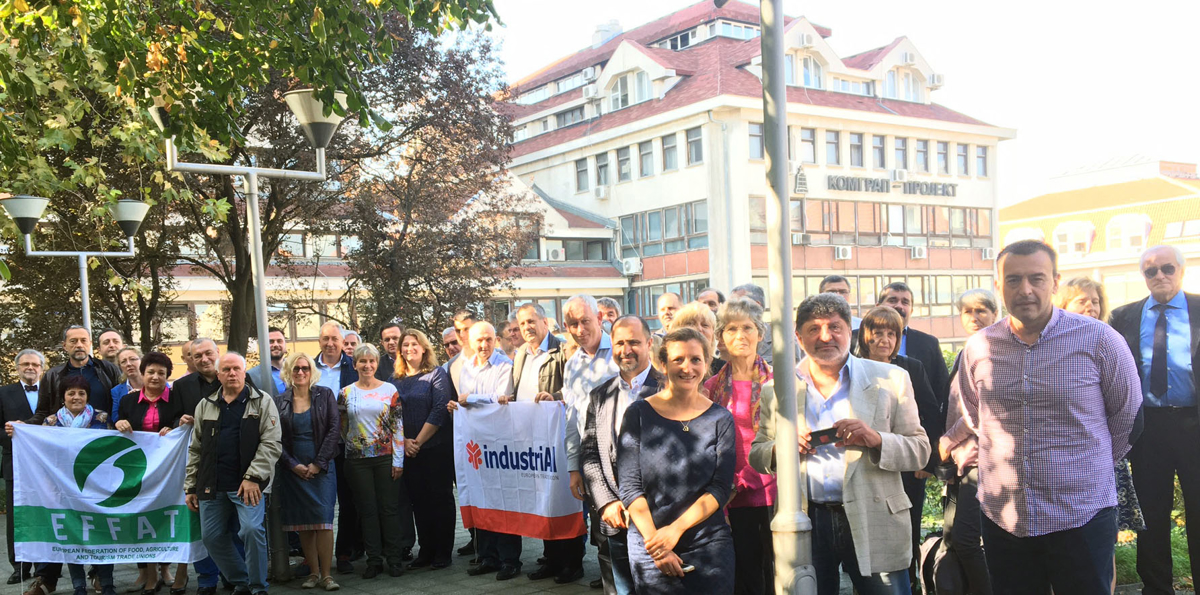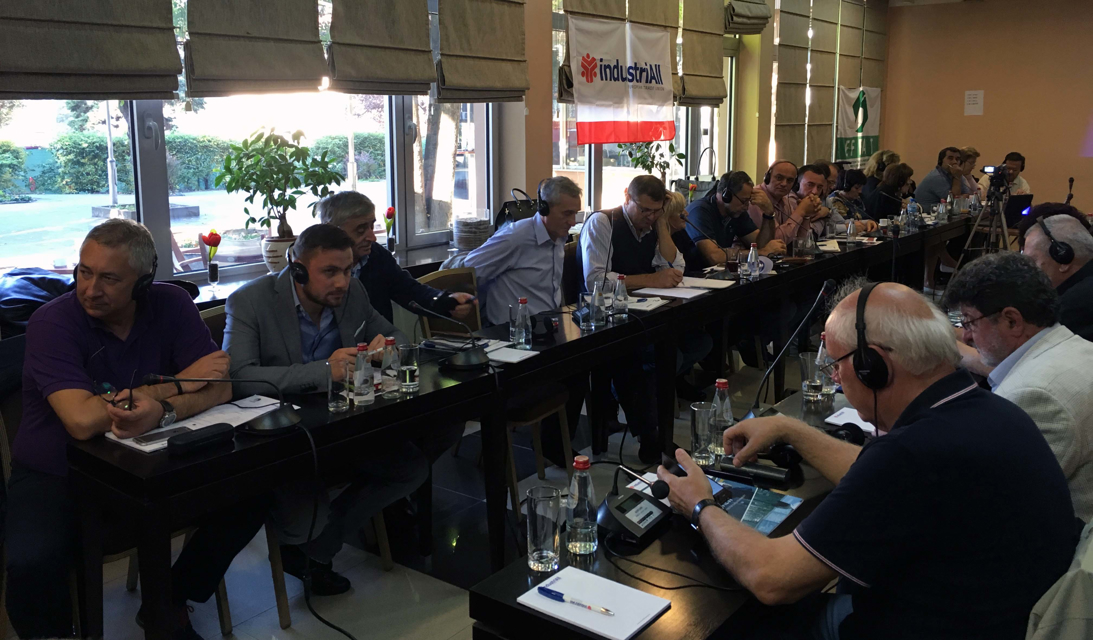Modernising the industrial infrastructure poses a real challenge for the industry and its workforce in south-east Europe, especially in the framework of adapting to EU legislation while remaining competitive on both the European and global market
During this event, trade unions and workers' representatives were joined by the Regional Cooperation Council and the Serbian Association of Employers in order to discuss possible strategies to shape the industrial policy agenda in south-east European countries.
However, while “a smart, innovative and sustainable industry” is discussed with a renewed EU Industrial Policy Strategy published by the Commission on 13 September, the six countries that were targeted in the project – Bulgaria, Croatia, Macedonia, Montenegro, Romania and Serbia – still lag behind in creating more favourable preconditions for the industry to redevelop and modernise.
Therefore, industriAll and EFFAT members in south-east Europe call upon their governments for an authentic industrial policy strategy and to devote the necessary means and resources to the implementations and monitoring process. In these countries, many of the traditional industrial sector installations are outdated and need to be modernised. However, in order to attract investments, a true level playing field for competition in the industrial sectors has to be created and thus the countries need to step up their efforts to strengthen their administrative and legal systems, to fight corruption and to limit the informal economy. Moreover, industrial sectors in south-east Europe often are low wage sectors: a fact that leads to a shortage of qualified workforce. At the same time, social dialogue systems are weak and trade unions are struggling to keep their membership levels throughout difficult privatisation and restructuring processes. It is not enough that the governments in SEE just respect social dialogue. They have to strongly promote social dialogue which is at the heart of the European social model.
These problems are part of the results of analyses of strengths, weaknesses, opportunities and threads (SWOT) of the industry for each of the six target countries that were developed within the project. In turn, the SWOT analyses offered the basis upon which nine policy recommendations were defined and presented during the conference:
1. Need to establish ‘authentic’ industrial policy
2. Move to high value-added industry and support wage increase
3. Better connect smart specialisation and real economy challenges
4. Skills development
5. Tackling the informal economy
6. Better use of EU funds for the development of technologies, skills and infrastructure
7. Development of supportive and inclusive administration and regulative framework
8. Preservation of the environment and sustainable industrial development
9. Governance of companies with public participation
“Modernising the industrial infrastructure poses a real challenge for the industry and its workforce in south-east Europe, especially in the framework of adapting to EU legislation while remaining competitive on both the European and global market”, stated Luc Triangle, General Secretary of industriAll Europe. “South-east European countries must step up their efforts to provide stable conditions and give incentives to companies to invest in their countries, other than low personnel costs!”
"EFFAT's sectors are crucial for European food security, employment and local wealth in communities. Some industrial sectors emerge, peak and decline over time but EFFAT's sectors contribute to the very subsistence of our societies”, explained Harald Wiedenhofer, General Secretary of EFFAT. “The Agro-food sector has a key role to play in south-east Europe. It is more sustainable to develop its great potential than to import Agro-food commodities from Latin America or elsewhere in the world. We call for holistic industrial policies that truly defend Europe's diverse regions and workers".
The industrial policy recommendations that were confirmed in Belgrade are available online in EN and HR. Translations in BG and RO will be made available soon.
IndustriAll European Trade Union is the voice of 7 million working men and women across supply chains in manufacturing, mining and energy sectors across Europe. We aim to protect and advance the rights of the workers.
EFFAT is the European Federation of Food, Agriculture and Tourism Trade Unions. As a European Trade Union Federation representing 120 national trade unions from 35 European countries, EFFAT defends the interests of some 22 million workers towards the European institutions, European Employers' Associations and transnational companies. EFFAT is a member of the ETUC and the European regional organisation of the IUF.
Contacts:
IndustriAll Europe: Corinna Zierold corinna.zierold@industriall-europe.eu Tel: +32 2 226 00 55
EFFAT: Estelle Brentnall E.Brentnall@effat.org Tel: +32 2 209 62 66

